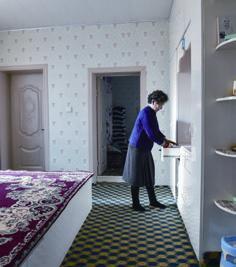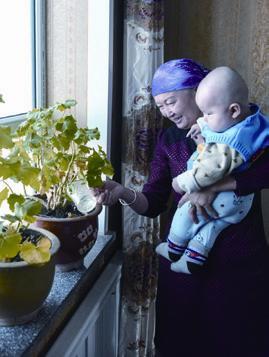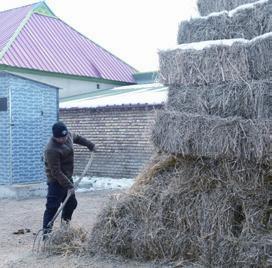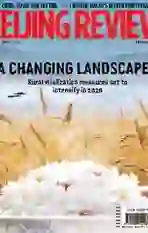VILLAGE FACELIFTS
2020-01-07
Mutalip Batirbays home has recently gotten a makeover. The courtyard was renovated and divided into three parts: houses, vegetable garden and pen. Batirbay and his wife and children live in Tugulqin Village, Zhaosu County, Ili Kazak Autonomous Prefecture, Xinjiang Uygur Autonomous Region in northwest China. In addition to farming, they also raise cows.
“Currently, not only the calves but also their manure earn me money,” Batirbay said. The cow manure is sold to Xinjiang Zhongfang Husbandry Co. Ltd. to make organic fertilizer. “Converting livestock excrement into organic fertilizer can not only improve the soil and environment, but also provide extra income to villagers,” said Zhao Zhongxing, an investor in the company.
But the story was different just under two years ago. Many villagers raised livestock that wandered around the courtyard and relieved itself everywhere. In 2018, a campaign was launched in the village to improve the living environment. Now, 90 percent of the village has been renovated.
“The better sanitary conditions are expected to attract more tourists,” Tang Zhile, First Secretary of the Communist Party of China Tugulqin Village Branch, said.
In 2019, a total of 9,180 villages in Xinjiang carried out sanitary improvement programs that included the renovation of toilets, disposal of domestic garbage, and treatment of sewage and waste from agricultural production.



